idleric
Contributing writer for The Artifice.
Contributor III
- Plebian Penman
- Lurker
- Pssst
- Sharp-Eyed Citizen
- Town Watch
- Detective Deskman
- 8-bit Hero
- ?
- Articles
6 - Featured
6 - Comments
29
- Ext. Comments
19 - Processed
55 - Revisions
32
- Topics
16 - Topics Taken
1 - Notes
27
- Topics Proc.
43 - Topics Rev.
6
- Points
2289 - Rank
54 - Score
1318
Latest Articles
Latest Topics
Transformation of professional wrestling in 21st centuryThough the general popularity of professional wrestling might not be the same as in the Golden age or in Attitude era, professional wrestling is still alive. When Cody Rhodes and Young Bucks organized the independent wrestling event "All In", the tickets were sold out in 30 minutes(they sold about 11000 tickets), which led to the foundation of All Elite Wrestling(AEW). AEW’s first Pay-Per-View event Double or Nothing was another sold out show(also sold out under 30 minutes), and their August event All Out(sequel to All In) sold out in 15 minutes. This event is planned to be held at the same arena for All In, so that would be another 10000 tickets sold out within 15 minutes. So the interest in professional wrestling was not dead. As of 2019, there are various professional wrestling promotions with different styles. New Japan Pro Wrestling presents their show to be more sports-like or, to some fans, manga-like style. Progress Wrestling in Britain promotes themselves as British strong style wrestling( punk rock), or wrestling for grown ups. Pro Wrestling Eve, women’s wrestling company in Britain, presents themselves as feminist punk-rock promotion. DDT wrestling in Japan is well known for their often comedic style of wrestling. And there are many, many more promotions. Each wrestling company specializes in different flavor of wrestling, presenting more variety than before. It would be interesting to see how the professional wrestling industry transformed over the past 20 years. What triggered this changes? How did the companies grow? What were the challenges? How do they differ from WWE? And how would this history similar or different from different art forms such as comics?
|
The resurrection of Resident EvilResident Evil 7 was a fresh shock for many fans. Many were pleased with the overall quality of the game, and the returning to more horror-centric design instead of action-oriented gameplay gave fans hope that the franchise would rise again after the previous games which were considered blunders by many. With the recent release of Resident Evil: RE2, the fans preferring the old-school Resident Evil once again find hope in the series’ direction. In what ways does Resident Evil franchise learn from their past criticisms and rejuvenate its strengths?
|
The legacy of DevilmanWith the release of Devilman: Crybaby, many anime fans in the west were exposed to the shocking story of Devilman saga. While Devilman was known to be the classic that inspired many dark-themed manga and anime works, the series was mostly unavailable for the wider audience. Those who knew about the original story felt the same shock in different style, but many new fans were exposed to the brutal scenes and plots of Devilman. It would be worthwhile to examine the impact of Devilman on the popular works and how they shaped the genres dealing with dark and grotesque fantasies. |
How should the readers take the creators' comments on their works?Let me start with the situation that brought this topic to my mind. In the interview in 2016(Jump Ryu, vol.1), Akira Toriyama, the creator of Dragon Ball, commented that the show’s hero Son Goku does not feel any friendship towards other characters, including Krillin. This caused some controversy among the fans who saw this interview, because many thought that Goku and Krillin were the best friends; after all, Goku’s anger exploded on Krillin’s first death, and it was Krillin’s death that triggered Goku’s transformation to Super Saiyan. Does that mean the death of someone, whom he had no strong feelings for, made him angry enough to transform? Did he vow revenge for those he felt no friendship? The some fans were outraged, and some found Toriyama’s comments ridiculous, because that was far from what they read in the text, and this new information did not clear any questions they had. Toriyama’s comments caused few controversies in the past, due to how contradictory it sounded to the readers, and also the fact that he was often forgetful of his own creations. Some even questioned the validity of his comments on Dragon Ball. But there are other creators whose comments outside the completed text that sometimes clarifies few points. Take Tolkien’s defense of Frodo. When a fan wrote to him that Frodo does not deserve to be a hero because he had succumbed to the Ring’s seduction in the end, Tolkien explained that though Frodo could not bring himself to destroy the One Ring, his sufferings and humility up to that point deserve highest honor. In this case, the author’s comments clarified his intentions to the readers. So this got me thinking: how should the readers treat the creator’s comments when reading the text? How critical should the readers be when considering the comments made by the creators? What analysis should be made when it seems to contradict the readings?
|
Published | Samurai Jack Season 5 - how did it become more matureSo far, Samurai Jack’s Season 5 has been receiving positive responses. Despite it becoming darker in tone, the show contained the balance between seriousness and humor. Its transition to Adult Swim allowed more freedom in terms of subject matters, especially with violence. But the show retained the feel of the old seasons though it became darker. Jack killed a person for the first time, and he suffers from guilt and hallucinations. But despite the shift in tone, the audience can still feel that this is Samurai Jack they used to know and love. It would be worthwhile to examine how the Season 5 of Samurai Jack retained its essence despite the change in the mood. For example, how does the violence in Season 5 compare to the old seasons? Was there a precursor to Jack’s dilemma in the old episodes? How effective was the transition?
|
Hyper Light Drifter and the Sharing of Personal SufferingsHyper Light Drifter’s game experience is inspired by the developer’s heart disease and his fear of meeting death at any moment. Death is constantly looming throughout the game as the protagonist continues to cough up blood. Players empathize with the fragile hero and the creator effectively shares his struggle How effective is this channeling of personal fear in Hyper Light Drifter, and what other examples are in other games?
|
Political Satires - Old and NewThe skepticism towards Politics is nearly as old as history of political system. Various literature throughout the history, including the Attic Comedy of Aristophanes, satirize the political systems and the prominent rulers. In many ways, Aristophanes can still appeal to the modern audiences thanks to his unforgiving wits and humor against the leading politicians like Cleon. Comparing Aristophanes to the modern satirists such as stand-up comedians or cartoonists could help us understand which aspect of politics changed or remained the same since the ancient Athens. For example, One thing to note is that Aristophanes frequently used ridiculous characters and exaggerated personalities to make this point. Has this been changed much? Does Aristophanes’ model lose its charm to the modern audiences? Compare and analyze the characters, the comic elements, and the message of Arisophanes to the modern comedy(such as the Simpsons, South Park, etc) and others.
|
Resident Evil Remake: Does It Still Deliver Chill?Resident Evil Remake and Resident Evil Zero were remastered recently. Resident Evil was considered the historically significant game which led to the immense popularity of zombie horror, and survival horror as whole. But is it still effective? Does Resident Evil’s formula still deliver tension and scare as it used to? If so, what does it say about the horror game genres of today? What can the current horror games learn from Resident Evil Remake’s strengths and weaknesses?
|
Latest Comments
| The Truth About Cats and Artists | |
I believe such terror-centric horror films like the Witch will do the genre more good and provide more diverse types of horror. Jump-scares and gores can exhaust the audiences, and by the time the movie reaches the climax they might be too tired to care. | The Witch: Yes, It is a "True" Horror Film |
Lu Bu is supposed to be extremely difficult, because Koei always envision him as the mightiest warrior in their games. For example, in Romance of the Three Kingdoms series, Lu Bu’s Might stat (used for duels, or the army’s attack power), is always 100(max) in any series + hidden stat(privilege given to the few chosen characters such as Uesugi Kenshin in Nobunaga’s Ambition) + the bonus from his weapon which makes him practically unbeatable in duels. So, it is normal that anyone, unless you are an expert player, will find Lu Bu unbeatable. He is just designed to be a juggernaut. | Analyzing Dynasty Warriors and its Spin-Offs: A Warrior Worthy Of Ten Thousand Foes |
This is very well written article. Good work on the in-depth research. | What the West Learned About Japanese Culture from Anime |
Animated films tend to give more chances for the fan favorites. Black Widow got her animated film(with the Punisher), and Wonder Woman had really good animated film too. I think the producers are too conservative when it comes to big films due to the budget/profit pressure. | Black Widow: Audiences' Expectations for Female Superheroes |
I think the chief reason for these phenomenons is the fear of failure; while Marvel knows that more diverse characters can draw more readers, they are afraid that creating completely new characters may not interest them. So the safest way (in their mind, I imagine) to create “diversity” in their comics is to replace pre-existing superheroes with characters with different gender/ethnicity. | What Marvel Hopes to Achieve with the Changing of Race/Gender in Pre-Existing Characters |
Another example (although non-Anime) would be 21. It is a movie based on true event, where the main casts were Asians, but they turned them into Caucasians, with Asian sidekicks. Of course, this stirred quite a bit of controversy. Interestingly, Jim Sturgess, who played the main character(who was Asian in real life), played Asian character in Cloud Atlas, in which he appeared with make up to appear as Asian. This caused “Yellow Face” controversy as well. | Whitewashing of Asian Characters in Hollywood Anime/Manga Adaptations |
I think one of the problems is that many of the characters’ stories are similar – Batman is famous for losing his parents in childhood, but how many superheroes have that same trauma? A lot. After few super heroes with similar backstories, or even power, the characters become indistinguishable, and become forgettable. | Killing Superheroes: What's Keeping New Superhero Invention? |
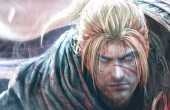
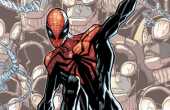
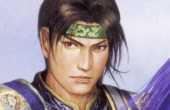

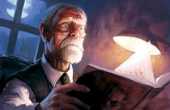
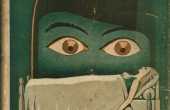
Very interesting article! It is very well researched.